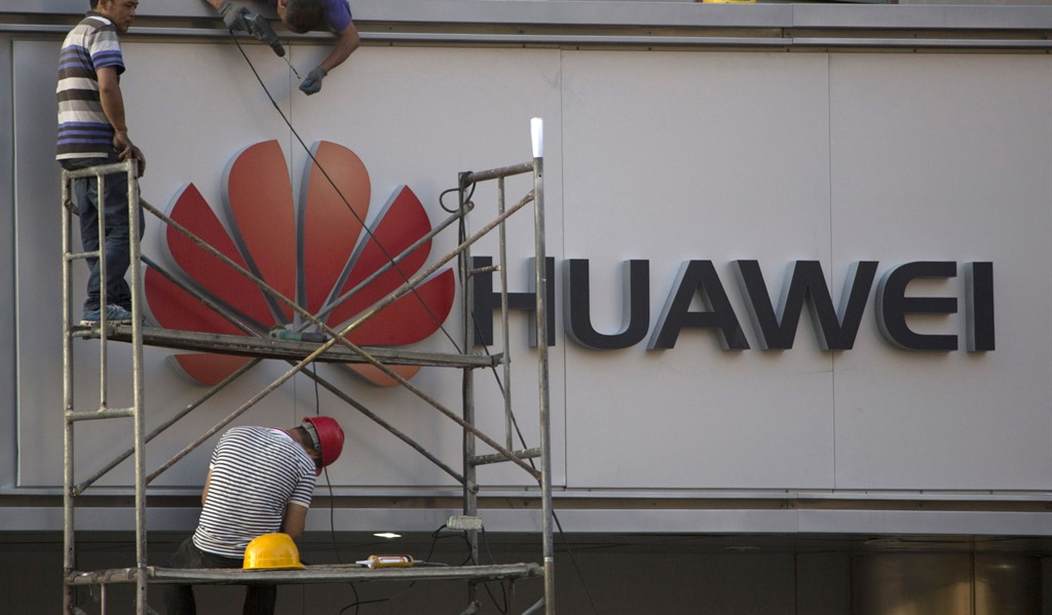The U.S. is once again aggressively banning Chinese-manufactured digital communications equipment.
Let us all be thankful.
On Dec. 2 the Federal Communications Commission expanded and toughened its ban on the "sale and import" of Chinese technology manufactured by firms the FCC determined present an "unacceptable risk" to U.S. national security. The firms include Huawei Technologies and ZTE Corporation.
The FCC's decision implements the Secure Equipment Act of 2021 President Joe Biden signed in November 2021. Rep. Steve Scalise, R-La., sponsored the legislation. The legislation continued important elements of the Trump administration's Clean Networks initiative.
The facts are clear and should disturb Americans who understand the systemic threat posed by the Chinese Communist Party dictatorship.
For two decades we've had evidence that equipment manufactured by several Chinese corporations are potentially "dual use" systems.
At one level their equipment does what it's supposed to do: connects communications systems like phones and computers. However, the systems have "backdoors" that give Chinese spies access to steal classified government secrets and your personal email.
Conceivably, the Chinese systems are offensive weapons: Trojan horses with intercontinental power. The CCP could use these pseudo-civilian systems to launch a cyber-Pearl Harbor attack on an adversary possessing them. The attack could damage the adversary's economy (e.g., shut down banking). If executed quickly and pervasively, the sneak attack could disrupt military communications channels and disable high-tech sensors.
Dual use technology isn't new but camouflaging it in civilian communications garb is a dangerous wrinkle. During the Cold War, "dual-use" meant a system could deliver conventional (non-nuclear) or nuclear weapons. The Cold War's B-52 bomber was built to strike the Soviet Union with nuclear weapons but has spent its long career dropping conventional bombs.
Recommended
In the Cold War sense, almost any aircraft, missile or vehicle could be "dual use," but the explosion would reveal its military purpose.
This century, cyberwar is a daily event. Hacking is routine.
Unfortunately, for the last two decades Chinese corporations have been manufacturing and selling digital dual-use technology that permits widespread espionage and could be used to conduct coordinated attacks that paralyze an entire country.
That's a big claim, but for several years Huawei has pursued a strategy to position itself as the world's dominant supplier of telecommunications equipment. Huawei seeks to dominate global and regional communications infrastructures as well as crucial international digital systems.
Huawei's most problematic scheme involves 5G "next generation" wireless communication systems that can connect cellphones, the internet and the "internet of things."
The internet of things includes virtually any digital device -- handy things like an automatic garage door. However, 5G can also connect "supervisory control and data acquisition" (SCADA) systems that control a dam's floodgates or a nuclear power plant's electrical grid connections.
Huawei also wants to provide hardware and corporate technical support for its products -- in other words, its personnel to have access to the systems.
Fact: The Chinese Communist Party dictatorship requires Chinese companies to give it access to all data they obtain. Fact: Huawei is not a private corporation. A trade union investment committee that is an arm of the All-China Federation of Trade Unions (in other words, a Chinese public entity) owns the holding company that owns Huawei.
Best laid plans: Huawei relies on computer chips designed by U.S. semiconductor companies. The chips are subject to American export controls. In October the Commerce Department basically banned semiconductor technology exports to China -- a move long overdue.
Chinese software is a threat. On Dec. 6 Maryland Gov. Larry Hogan banned certain "foreign digital platforms" and Chinese and Russian "media products" from Maryland state government digital networks. Huawei made the list. Hogan said, "There may be no greater threat to our personal safety and our national security than the cyber vulnerabilities that support our daily lives."
Hogan also banned TikTok, Chinese video-sharing software many American teens use. China can use the app to collect embarrassing information on future American adults, adults the CCP might one day want to blackmail with those racy juvenile videos.

























Join the conversation as a VIP Member